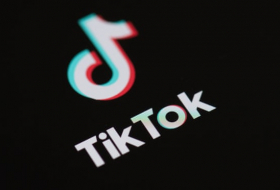So they enrolled 18 female college students, all of whom reported being chronically sleep deprived, and conducted workplace simulations on three separate days. On two of the days, the participants took capsules containing either 50 mg caffeine (about the equivalent to a can of cola) or a placebo. The other day, they spent 10 minutes walking up and down stairs at a low-intensity pace.
After each intervention, the women were given verbal and computer-based tests to gauge their mood and their performance on certain cognitive tasks. Neither the caffeine nor the exercise caused large improvements in attention or memory. But the women did exhibit a small increase in motivation levels after walking the stairs, compared to a decrease after having caffeine or placebo pills.
Co-author Patrick J. O’Connor, a professor in UGA’s department of kinesiology, says the women also felt slightly more energetic after hitting the stairs. “It was a temporary feeling, felt immediately after the exercise,” he said in a press release. “But with the 50 milligrams of caffeine, we didn’t get as big an effect."
There’s been plenty of research showing that exercising for 20 minutes or more can boost energy levels, the authors wrote in their paper, but this appears to be the first study to look at such a short period of stair walking. They point out that feelings of fatigue were not significantly improved after either intervention, and say that longer bouts of exercise may be required to produce lasting effects. They also note that taking walking breaks outdoors, or with other people, may provide further mood-enhancing benefits.
And of course, the authors aren’t suggesting that a quick burst of exercise is all you need for overall health. They say more studies are needed to determine the specific benefits of stair-walking—although previous research has shown that spending just 10 minutes on the stairs, three times a week, can have real cardiovascular benefits.
Still, it’s good to know that this quick, zero-calorie energy booster is there when you need it; it’s also free and, in most workplaces, accessible rain or shine. And with recent news linking both regular and diet soda to negative effects on the brain, it’s nice to have an option that’s been shown to work just as well, if not better, than caffeine.
“It’s an option to keep some fitness while taking a short break from work,” said O’Connor. “You may not have time to go for a swim, but you might have 10 minutes to walk up and down the stairs.”
/TIME/
More about: #health















-1741770194.jpg&h=190&w=280&zc=1&q=100)






-1741765030.jpg&h=190&w=280&zc=1&q=100)

























